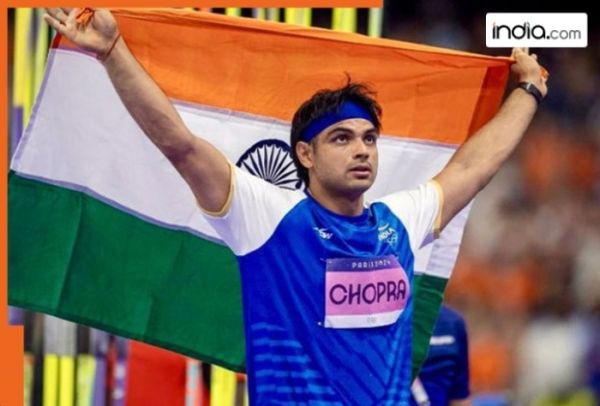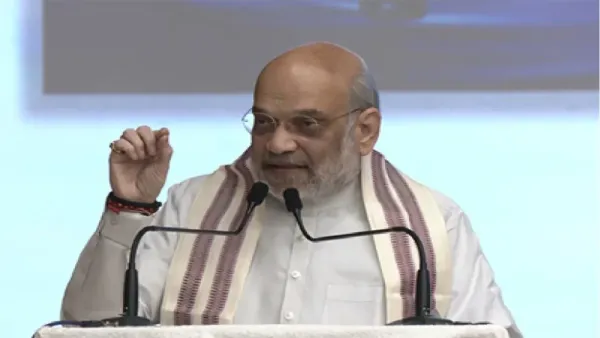
India is often described as a country on the rise — and by many measures, that’s true. With a projected GDP of over $4.2 trillion by 2026, India is expected to overtake Japan and Germany to become the world’s 4th largest economy, according to S&P Global. Its booming startup ecosystem, growing number of billionaires, and international tech presence make for a compelling growth story.
But behind the headlines lies a quieter, more complicated truth — one that challenges our definitions of wealth, comfort, and what it truly means to be "middle class" in India today.
When ₹70 Lakh Isn’t Enough
 A recent LinkedIn post by investment banker Sarthak Ahuja, based in Gurugram, sparked a debate around this very question. He called ₹70 lakh per annum “the new middle class”, highlighting how a seemingly high income can still lead to financial stress in India’s urban centers.
A recent LinkedIn post by investment banker Sarthak Ahuja, based in Gurugram, sparked a debate around this very question. He called ₹70 lakh per annum “the new middle class”, highlighting how a seemingly high income can still lead to financial stress in India’s urban centers.
Ahuja breaks down the numbers:
- Gross salary: ₹70 lakh/year
- Tax deductions: ~₹20 lakh
- Disposable income: ₹50 lakh/year (~₹4.1 lakh/month)
- Home loan EMI (for a ₹3 crore house): ₹1.7 lakh
- Car EMI (for a ₹20 lakh vehicle): ₹65,000
- International school fees: ₹50,000
- Domestic help and household support: ₹15,000
This isn’t about poor financial choices or overindulgence. It's a reflection of how expensive it has become to maintain a basic aspirational lifestyle in cities like Mumbai, Bengaluru, and Delhi. Housing prices, education costs, and social expectations have outpaced income growth — even at high salary levels.
The Larger Paradox: A Growing Economy, Uneven Gains
 This personal example reflects a broader economic tension. India’s GDP might be growing, but prosperity is not being felt equally. According to the World Inequality Database:
This personal example reflects a broader economic tension. India’s GDP might be growing, but prosperity is not being felt equally. According to the World Inequality Database:
| Top 10% | 65% | 57.7% |
| Top 0.1% | 29% | — |
| Middle 40% | 29% | — |
| Bottom 50% | 6.4% | 15% |
In 1961, the bottom 50% held 11.4% of India’s wealth. Today, it’s nearly half that. Meanwhile, the wealthiest 0.1% now own nearly one-third of the country’s assets.
The Quiet Squeeze on the Middle Class
 What’s especially striking is how this inequality is not only a problem for the poor — but increasingly for the professional middle class as well.
What’s especially striking is how this inequality is not only a problem for the poor — but increasingly for the professional middle class as well.
- The middle 40%, once considered the backbone of India’s economic engine, now holds only 29% of wealth.
- Their average income hovers around ₹1.65 lakh/year, far below the national GDP per capita.
- They pay most indirect taxes, like GST, but receive limited direct benefits in return.
This is the heart of the paradox: India’s middle class has grown in aspiration, but not always in stability. They are consumers of economic growth, but rarely its beneficiaries.
When High Earners Feel Financially Insecure
 Ahuja’s post struck a nerve precisely because it put numbers to a feeling many have but few openly discuss: earning well doesn’t guarantee peace of mind anymore.
Ahuja’s post struck a nerve precisely because it put numbers to a feeling many have but few openly discuss: earning well doesn’t guarantee peace of mind anymore.
At ₹70 lakh per year, you're technically among India’s top 1% of earners, yet your lived reality might feel more like survival than success — especially if you're raising a family, repaying loans, and planning for long-term security.
It highlights an uncomfortable shift: being "rich" in income no longer means being rich in freedom. The pressure to maintain a lifestyle, educate children globally, and own property in major cities creates a cycle of debt and stress, even among top earners.
Structural Causes: More Than Just Personal Finance
 The issue isn’t just about budgeting — it’s systemic. India's economic structure tends to favor capital over labor, and ownership over effort. There is:
The issue isn’t just about budgeting — it’s systemic. India's economic structure tends to favor capital over labor, and ownership over effort. There is:
- No wealth tax
- No inheritance tax
- Light taxation on capital gains and real estate wealth
- Heavy indirect taxation (like GST) that affects the broader population, not just the rich
The Fix Is Not Higher Salaries — It’s a Better System
 India doesn't need more millionaires. It needs a fairer distribution of opportunity and security. That means:
India doesn't need more millionaires. It needs a fairer distribution of opportunity and security. That means:
- Taxing extreme wealth — A 2% wealth tax on just 167 families could raise 0.5% of national income.
- Massive public investment in healthcare, education, and nutrition
- Rebalancing the tax structure to lighten the load on the working and middle classes
- Prioritizing job creation and urban affordability over flashy GDP numbers
 India is not poor — but millions of Indians still are. And now, even its high earners are feeling the heat. A ₹70 lakh salary should represent success — but in today’s India, it represents how wide the gap has become.
India is not poor — but millions of Indians still are. And now, even its high earners are feeling the heat. A ₹70 lakh salary should represent success — but in today’s India, it represents how wide the gap has become.
The rich-poor illusion is no longer just about slums and skyscrapers. It’s about a class that earns in crores — and still lives under the burden of debt, insecurity, and the fear of falling behind.
Until that illusion is shattered by real reform, India’s prosperity will remain an illusion for most — and a debt trap for the rest.
Explore the latest trends and tips in
-
Now the mobile itself will tell – “Whose call is!” Life will be easier than before

-
OnePlus Nord 4 5G Gets Massive Discount on This Platform Ahead of Nord 5 Launch, Now available for Rs 17,000; Check Specs | Technology news

-
Neeraj Chopra seeks first major title of season, up against Julian Weber in Paris Diamond League

-
India to evacuate its nationals from Israel

-
There will be shame to English speakers in the country, Amit Shah said a big thing, people who are spoken in the country will feel ashamed, Amit Shah Said Somenting Big
